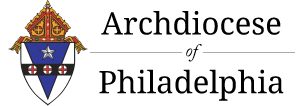I’d like to do two simple things with this week’s column.
The first is to offer some heartfelt praise for two exceptional works of Christian witness that create real hope and strength for today’s Church, and deserve our support:
The Culture Project International, in its own words, “is an initiative of young people” passionate to “restore culture through the experience of virtue. We proclaim the dignity of the human person and the richness of living sexual integrity, inviting our culture to become fully alive! Members of our team make a commitment of at least one year of their life to enter into a program in which they themselves live and pray in community, receive formation and also are sent out on mission nationally and internationally.” With a synod on the vocation and faith of young people scheduled for Rome this October, the work of the Culture Project is especially urgent and valuable. Philadelphia’s Cristina Barba leads the project with wonderful energy and vision, and the results are impressive.
Courage International, founded by the late Father John Harvey in 1980, is a ministry to men and women who experience same-sex attraction and those who love them. Courage has five goals for its members, all focused on leading them to a meaningful life of chastity, Christian fellowship, and a deeper relationship with Jesus Christ and the Catholic faith. Its sister organization, EnCourage, provides pastoral care for families and friends of people who experience same-sex attraction and/or gender dysphoria. Courage and EnCourage are led with great skill and compassion by Father Philip Bochanski – a priest of the Archdiocese of Philadelphia – and they do vital work, often in the face of bitter criticism and misleading claims from those who reject the Church’s moral guidance on matters of sexuality. Don’t be fooled: Courage is a treasure for the mission of the Church.
The second goal of this week’s column is to note that this Sunday, June 3, marks one of the greatest moments in the Church year: the Solemnity of the Most Holy Body and Blood of Christ. Vatican II described the Eucharist as “the source and summit” of Christian life for good reason. The Church has always accepted the words of Jesus at the Last Supper as quite literally true: The Eucharist is the real, tangible, living body and blood of Christ under the appearances of bread and wine. It is not simply a sacred meal, or a symbol, or a pious ritual meant to stimulate memories of our redemption. Jesus is literally present in the Eucharist of every Mass and in the silence of every Adoration Chapel.
As a result, taking the Lord into our own flesh and blood at communion should never be an action done reflexively, or tepidly, or to avoid the embarrassment of staying in one’s pew, or (much worse) in a conscious state of serious sin. Over the centuries, men and women have given their lives to honor and defend Christ’s Real Presence in the Eucharist precisely because it’s the foundation of our Catholic identity, and the seal of our unity and shared belief. This is why intercommunion with other, non-Catholic Christians who do not share our understanding of the Real Presence is not possible. It would be misleading and self-contradictory. There can – and must – be respect, mutual support, and friendship with the many, many good people of other Christian traditions. But no genuine unity can be built on differing views of the most central element of our faith.
Sadly, “intercommunion” is now a sharply disputed issue among Catholics in Germany, and I’ve spoken about it here and here because the matter has implications well beyond that country. In late April, Bishop Rudolf Voderholzer of Germany’s Regensburg Diocese summed up the issue in these words:
Voderholzer: If one studies the [relevant Protestant] texts, one in fact realizes that nowhere is communion assigned such a significant role as in Holy Communion on the Catholic side. [For many Protestants,] whoever celebrates the Service of the Word already has the highest form of encounter with God, beyond which the Lord’s Supper does not constitute any added value . . . Accordingly, communion is [typically] given infrequently, on an average of once a month.
In the Catholic Church, we celebrate the Eucharist every Sunday and on every holyday, of course, but we do so even daily. As regards the Catholic view, it is particularly important [to understand] that Mass is not the repetition of the Last Supper of Jesus and his disciples, but the celebration of his death and his resurrection, the realization of his sacrifice on the cross.
Interviewer: Why are people of Protestant faiths forbidden from receiving communion in the Catholic Church?
Voderholzer: The term “forbidden” is completely inappropriate. It is about taking one’s own faith and another’s denomination seriously. Whoever receives the Eucharist in the Catholic Church affirms [the Catholic] belief with regard to the Eucharist.
Interviewer: And what does that mean more precisely?
Voderholzer: To begin with, [it means a belief in the] real and abiding presence of Jesus Christ in the Eucharistic species. But belief in the Eucharist is not restricted to that . . . In Holy Communion, the entire Catholic faith is testified to and professed in condensed form. The Eucharist is the origin and source of the Church and her unity, which spans time and space. It is not a meal shared together where someone would have to feel excluded if he did not receive anything to eat . . .
This Sunday, let’s prepare our hearts in a special way to give gratitude and glory to God for his body and blood tangibly among us in the Eucharist. The Real Presence is a treasure of infinite value. May God grant us the zeal to acknowledge that in our words, our actions, and our lives.
# # #
Editor’s Note: Columns will be published each week on www.CatholicPhilly.com and can also be found at https://archphila.org/archbishop-chaput/statements/statements.php.






